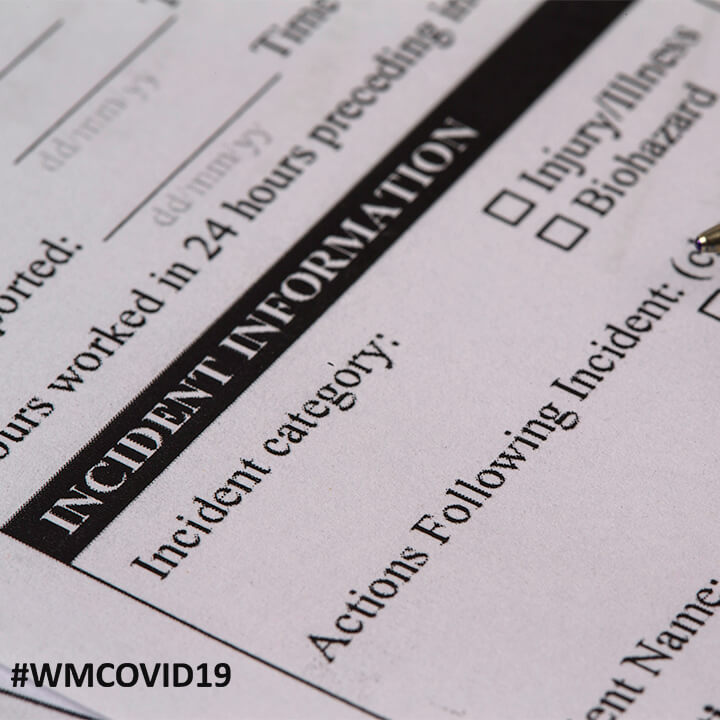Newsflash: COVID-19 – An employer’s duty to report (RIDDOR)
6th April 2020
The Health and Safety Executive have clarified that, in certain limited circumstances, employers do have an obligation make to a report under the Reporting of Injuries, Diseases and Dangerous Occurrences Regulations 2013, or ‘RIDDOR’.
However, there are only two circumstances in which employers must make a report which are:
- Where an unintended incident at work has led to someone’s possible or actual exposure to coronavirus. This must be reported as a dangerous occurrence.
- A worker has been diagnosed as having COVID-19 and there is reasonable evidence that it was caused by exposure at work. This must be reported as a case of disease.
Be careful to properly understand what the Health and Safety Executive actually means here.
The Guidance does help out by providing examples.
Dangerous Occurrences
In relation to COVID-19 a Dangerous Occurrence may be the inadvertent release of the virus in a laboratory or similar setting. This might be where an employee has accidently broken a glass vial containing the virus which has led to either possible or actual exposure.
Diseases
Where someone is exposed to the virus because of their work and is diagnosed with COVID-19, you must report this to the Health and Safety Executive. An example might be a healthcare professional diagnosed with COVID-19 after treating patients. Unlike the Dangerous Occurrences example, this category of exposure is potentially far wider and could easily include care homes and similar settings.
Stuart Ponting, Health and Safety Partner at Walker Morris LLP commented:
“As employers struggle to maintain some semblance of normality within their organisations, they must not forget their duties under the Health and Safety at Work etc Act 1974. Clear protocols for the timely identification and reporting of any COVID-19 exposures that fall within the RIDDOR regime should be established and adhered to, particularly as a failure to comply can result in criminal liability and potential fines for the organisation”.

